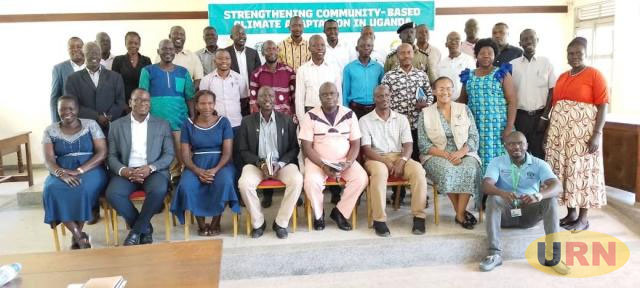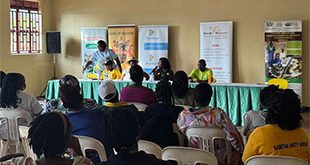
Kitgum, Uganda | THE INDEPENDENT | Kitgum District is set to benefit from a Shs1.3 billion climate adaptation project aimed at enhancing the resilience of communities to the impacts of climate change. The project, titled “Strengthening Community-Based Climate Adaptation,” is a collaboration between Adventist Development Relief Agency (ADRA) Uganda and Reproductive Health Uganda, with funding support from the Ministry of Foreign Affairs of Denmark. It will run for two and a half years, from March 25, 2025, to August 31, 2027.
The initiative seeks to equip communities with knowledge and practical skills to effectively respond to climate challenges. According to George Williams Kibero, the Programs Manager at ADRA Uganda, the project will focus on conflict-sensitive anticipatory action, climate-smart agriculture, natural resource management, and livelihood support. It will also promote gender equality and women’s economic empowerment through a gender transformation approach.
Kibero noted that the project will be implemented in Orom East Sub-County in Kitgum District. The area was selected due to its vulnerability to climate change, history as a conflict hotspot, and its strategic location near the border with South Sudan. He explained that one of the key aims is to build the capacity of local communities to anticipate and respond to climate-related conflicts, while simultaneously promoting sustainable farming methods and responsible management of natural resources.
Strengthening livelihoods is another critical pillar of the project, ensuring that residents have diverse and sustainable income sources. The project is expected to yield a greater understanding of conflict dynamics and equip communities with tools to adopt conflict-sensitive approaches in climate adaptation. Kibero said the intervention will also help communities build long-term resilience against climate and weather-related shocks.
The Kitgum District leadership has welcomed the project. Arwai Christopher Obol, the District Chairperson, expressed optimism about its potential to improve the livelihoods of vulnerable populations and pledged full district support to ensure successful implementation.
Hajj Marijan Walire, the Deputy Resident District Commissioner, called for transparency and accountability in the project’s rollout. He assured the public that the Office of the RDC would closely monitor the implementation to ensure quality service delivery.
Kibero concluded that this project forms part of a wider global effort to address the impacts of climate change. He emphasized the increasing importance of climate finance in helping developing countries like Uganda build resilience and transition toward low-carbon development pathways.
****
URN
 The Independent Uganda: You get the Truth we Pay the Price
The Independent Uganda: You get the Truth we Pay the Price



